I have officially seen all of the Katherine Hepburn/Cary Grant films. Since there were only three, this may seem like a small chunk of cinematic accomplishment. But baby steps, you guys. I’m inching my way closer to seeing all of Katherine Hepburn and Spencer Tracy, and I hope that someday I will have all of Cary Grant under my belt. I mean, all of Cary Grant’s movies under my belt. HIOH! (that was a weird one, because he is dead).
Ol' Deady
Hepburn and Grant were great friends, not lovers, so their chemistry is more malleable than, say, Tracy and Hepburn. They can be screwball lovers, serious lovers, ex-lovers and move fluidly between the different dynamics, whereas Tracy and Hepburn, no matter what they play, always have that flirty twinkle in their eyes. These three movies cover the spectrum of screwball to serious drama, with Bringing Up Baby being regarding as one of the silliest comedies ever, Philadelphia Story cuts to a strong emotional core, and Holiday rides somewhere in the middle, being silly but toying with some serious dramatic undercurrent. I think what I will do is address them all individually, in decreasing order of silliness, and then talk about them as a whole, if I don’t get bored before then.
Bringing Up Baby is Bre’s all-time favorite movie. First of all, the premise is practically designed to be a Bre and Nancy movie – a wild and rambunctious woman tricks a nerdy paleontologist into falling in love with her. We love these movies because we not-so-secretly believe that tricking a nerd is all there is to love. On another level, I love movies like these in general, where a remarkable storyline moves so quickly, and you watch a snarky and sharp love grow through incredibly quick and hilarious dialogue.
“Don’t lose your head!” “I’ve got my head, I’ve lost my leopard!”
But it is more than just that. What’s remarkable about Bringing Up Baby is how fast-paced it is. It may have indeed coined the term “madcap”. Cary Grant provides the rock against a dizzying array of ridiculous circumstances and situations, mostly based around a renegade leopard that Katherine Hepburn’s character carts around. Their names in the film are David and Susan. Susan is convinced that David should fall in love with her, so she follows him around, tricks him into spending time with her, and does silly things like steal his clothes so he can’t leave or pretend she’s being attacked by wild animals so he will come rescue her. I know what you’re thinking. She’s a keeper. But wait, there’s more!
“You’re angry, aren’t you?” “Yes, I am!” “Hmm. The love impulse in men frequently reveals itself in terms of anger”
Susan has the sharpness of a lawyer. I might just be saying this because I have been watching so many legal films lately, and I’m imposing their speech patterns on her. But she uses quick little quips of linguistics and logic in order to confuse and disarm, leaving David’s character in a bumbling state of confusion and frustration. This is all in order for her to effectively prove her case, which is simply that she is utterly charming and Cary Grant *should* be madly in love with her. I am first in line to admit that all this might seem a little crazy? But if animosity and sharp banter aren’t signs of true, deep-down affection, then all of the people I care about are really, really mean to me.
“Oh, you can’t possibly think I did that intentionally.” “Susan, if I could think, I would have run when I saw you.”
I mean, honestly, to go into any more details would frankly be silly. The movie works at a ridiculous pace, pulling in all of these fantastic events that keep drawing these two people together. David protests the whole time, and their banter is some of the best dialogue ever written. It would be impossible to take the time to shut someone up for your favorite line, because the very act of saying “shh” would quiet another gem.
“Now it isn't that I don't like you, Susan, because, after all, in moments of quiet, I'm strangely drawn toward you, but - well, there haven't been any quiet moments.”
Holiday is a little more serious, and it involves an actual, relationship problem. I mean, it is a relationship problem of an older era – Cary Grant’s character Johnny is about to marry a woman named Julia, and whoops, finds out she’s rich. Don’t think less of me if I say that I cannot really relate to that. I’d like to think that I’d know some degree of the person I was about to marry before I….married them.
So it’s an issue of the past, but it’s still an issue. Julia finds out that the extent of Johnny’s career goals is saving up enough money to take a holiday (hey, that’s the name of the movie!) to find himself. Cary plays Johnny very sweetly and very sincerely, eliciting a real bumbling confusion but a genuine desire to do the right thing. And, it *is* still a real problem when two people get together and realize that they have completely different backgrounds/expectation for their lives.
“When I find myself in a position like this, I ask myself what would General Motors do? And then I do the opposite.”
My girl Katherine comes in as Julia’s sister Linda, who is older, playful and more skeptical. Playful but skeptical seems like a useful duo of characteristic in order to survive in life. But, having money, Linda is pressure to live up to her inheritance and the role her family wants for her. Needless to say, she naturally rebels against this. Julia is the only child who dutifully follows her lot in life. Their brother is a drunk, and Linda’s flightiness is seen as just lunacy. Again, needless to say, her and Johnny spark.
A lot of people have been calling me on my strangeness lately. If you’ve met me more than once, you are nodding solemnly and saying “Rightfully so…”. But watching Julia do backflips in the playroom and compare herself to giraffes makes me feel not-so-alone. Katherine as a whole makes me feel not-so-alone. This woman is not the quintessential starlet, not smoky or cute or seductive, but sharp as a tack, utterly fearless and shameless. The brazenness that she takes to her feelings for Johnny is something to be admired. I love that selfless love, that I’ll-probably-be-hurt-but-whatever-let’s-go love.
“You've got no faith in Johnny, have you, Julia? His little dream may fall flat, you think. Well, so it may, what if it should? There'll be another. Oh, I've got all the faith in the world in Johnny. Whatever he does is all right with me. If he wants to dream for a while, he can dream for a while, and if he wants to come back and sell peanuts, oh, how I'll believe in those peanuts!”
I’ve read about her relationship to Spencer Tracy, and how they loved each other but he refused to divorce his estranged wife for her (Catholicism, amiright folks?). And so she dutifully tagged along, admiring him and abiding by his wishes their entire life together. There is no doubt in my (little) mind (that worries way too much about old Hollywood couples) that Spencer really fucking loved Katherine. But it is worth noting that the pants-wearing, back-flipping, devilish queen of sass-a-frass spent the majority of her life following another man’s heels. A quintessential feminist icon stuck around for a man who could not bring himself to leave his wife for her.
Yet I feel even *more* empowered by her decision, both in real life and in Holiday. It feels like she is saying in both cases “Who cares if I am ridiculous? Who cares if I am loved in return? I am going to be true to myself, and this is how I feel” She had so much strength and poise in every area of her life, and she certainly brought it to being googly-eyed as well. She played a lovelorn woman as strong and with as much class and determination as anyone ever could, because she was one.
Which brings us to the film of hers which has taught ol’ Nance-a-noodler the most about love, The Philadelphia Story. This film also stars Jimmy Stewart, which works *greatly* in its favor. It is about a woman named Tracy, who is one of the rich and classy socialites that crop up in movies from this era, who cares about reputation and knows how to ride a horse. She is tough as nails, however, and acts out her allotted role in society mostly for love of her family, and out of some sense of confused duty. Her rebellion isn’t as explicit as Julia in Holiday; she is just confused and running around, getting the sense that something is amok but not sure what to do about it. Her decision is to then marry the nouveau riche, a man named George, under the pretense that he is a working-class man since he rose himself up to status as opposed to having it handed to him. This is her pretense for love and it is how she allows it to justify her privileged existence.
“I worshipped you from afar.” “I don’t want to be worshipped, I want
to be loved!”
to be loved!”
Obviously, something is missing. In one scene, she tackles George happily and throws him in the dirt, because she feels like this is something that lovers do. But she is faking it, and George is thrown off by it. It’s not unlike the second lobster scene in Annie Hall – trying to re-create an idea of what you think that love should be, and having it not work because that emotional connection is not there. Her relationship to George is purely theoretical; they adore each other, but they don’t *love* each other for all of their gritty flaws and incompleteness.
“You’ll never be a first-rate woman or a first-rate human being until you learn to have some regard for human fraility.”
Loving flaws is probably the most dominant theme in this film. Cary Grant plays Dexter, who Tracy had left years ago because he was an alcoholic, and he was enraged that she would just chastise him and did little to help him work through it. He re-enters her life for her wedding, and the entire time they verbally spar, with the same rapid-fire as Bringing Up Baby but with an intense and sharp flavor, as opposed to the flippant and silly dialogue of Susan and David. Dexter endlessly calls her on her bullshit, and (angrily) works with her in order for her to become a better person. Both of them are tough and mock each other ceaselessly and so majestically fluidly that again, like all of the dialogue shared between Hepburn and Grant, it’s really hard to keep up.
“The time to make up your mind about people…is never.”
And then there is a Mike, a reporter for the wedding played by Jimmy Stewart. He is a wild card, and sort of throws a wrench into the whole situation. He is *actually* poor, decidedly working class and sort of a dick about it. Mike and Tracy have an immediate frustration/attraction to each other, and he sort of mingles about the entire ordeal, adding a further level of complication to Tracy’s emotions. The scene where they both get drunk and mock each other by the poolside is hands down one of the sexiest, smoothest and smartest pieces of cinema I’ve ever seen.
There is so much that I like about this movie. I love how flabber-gasted Tracy is with the whole thing. Her reactions are 100% correct given the situations that she is finding herself in. Imagine feeling three different sets of feelings for three different men the night before your wedding. And the ending, which I will not spoil her, is perfect. It may seem a little rushed and forced, but it echoes the insanity of the emotions Tracy must feel, which makes it more fitting.
But more than anything, I love how much this film stresses that love is not an ideal, not something to be chased, not forced. That you are not *in love* if you just love what makes someone great, and not even just love what makes someone terrible, but all of the entire ordeal. That when someone actually loves you, and knows you, it stops being romantic. It becomes calling each other on your bullshit, but loving the bullshit, and loving the things about the other person that make them weak, that make their knees buckle, that make them act in ways that are ridiculous, that are confused, that are fake and foreign to who they actually are, and you know that. But loving them enough to put up with all of the fucking work you have to go through to make them a stronger person, and counting on them to do the same for you.
This is the first film where Katherine wasn’t absolutely brazen, where she was a bit reserved and confused and coquettish. In all of the other films, she was not held back at all, but here she definitely is, a bit. And here, Cary is a bit firmer, a bit more demanding as opposed to a confused and lost boy under Katherine’s thumb. Cary Grant is unique, because he is one of the most versatile actors I’ve ever seen, but he still calls ladies “darling” in the very same way, no matter the movie he is in. He is much like John Wayne in that he is never *not* Cary Grant.
Obviously, these three movies are kickass, and to watch the differences in how Grant and Hepburn play off each other is fantastic. If you ever need a six-hour marathon of wacky circumstances, sharp banter and selfless love, I will show up at your door with martinis and these three movies.



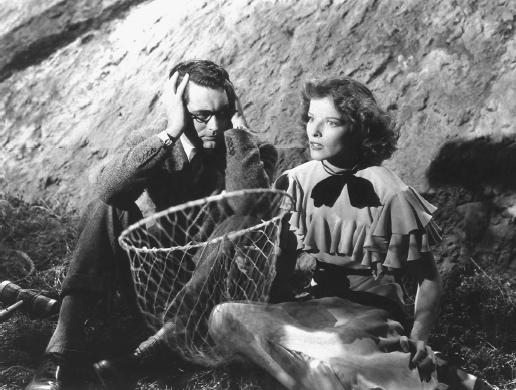
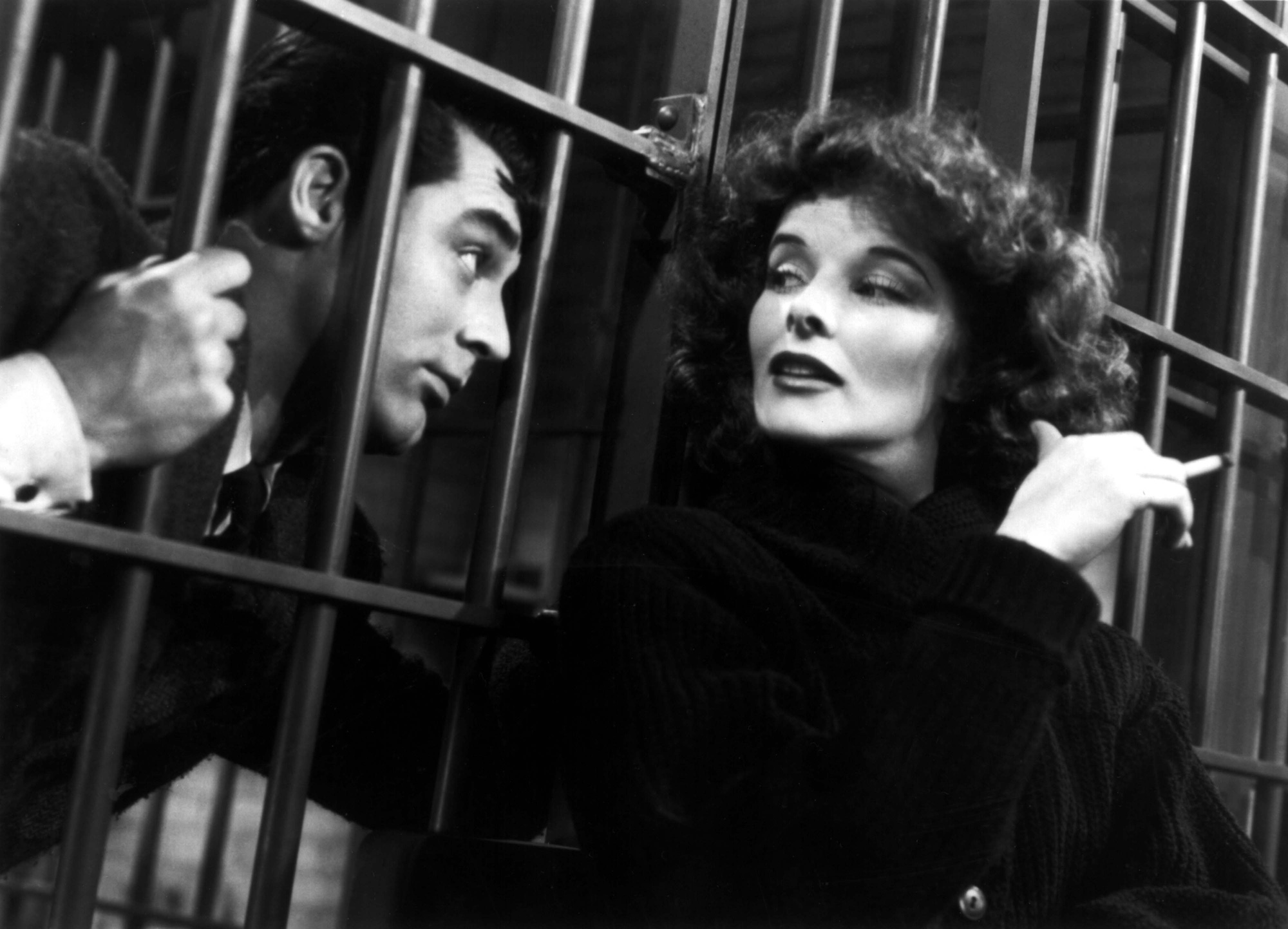


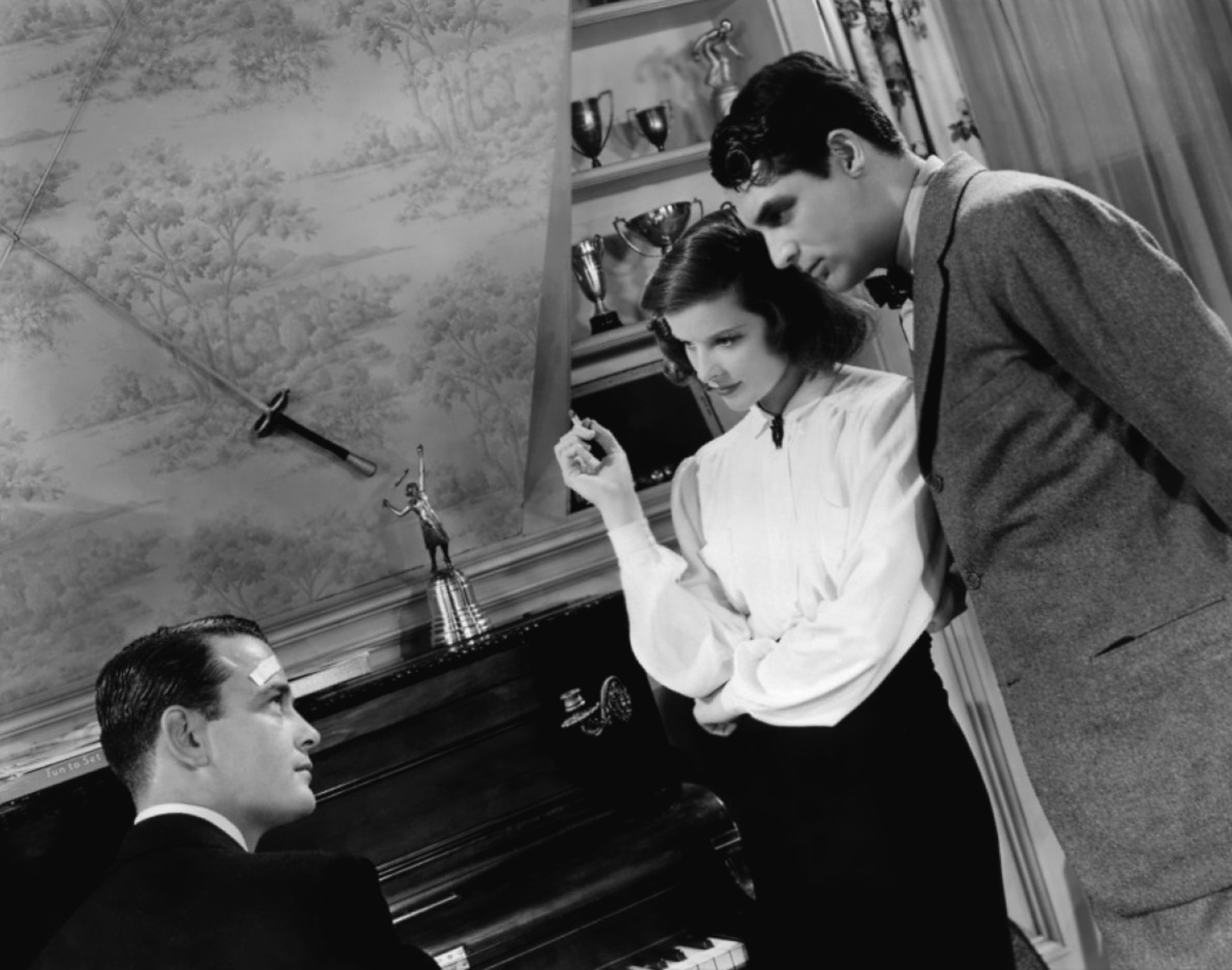
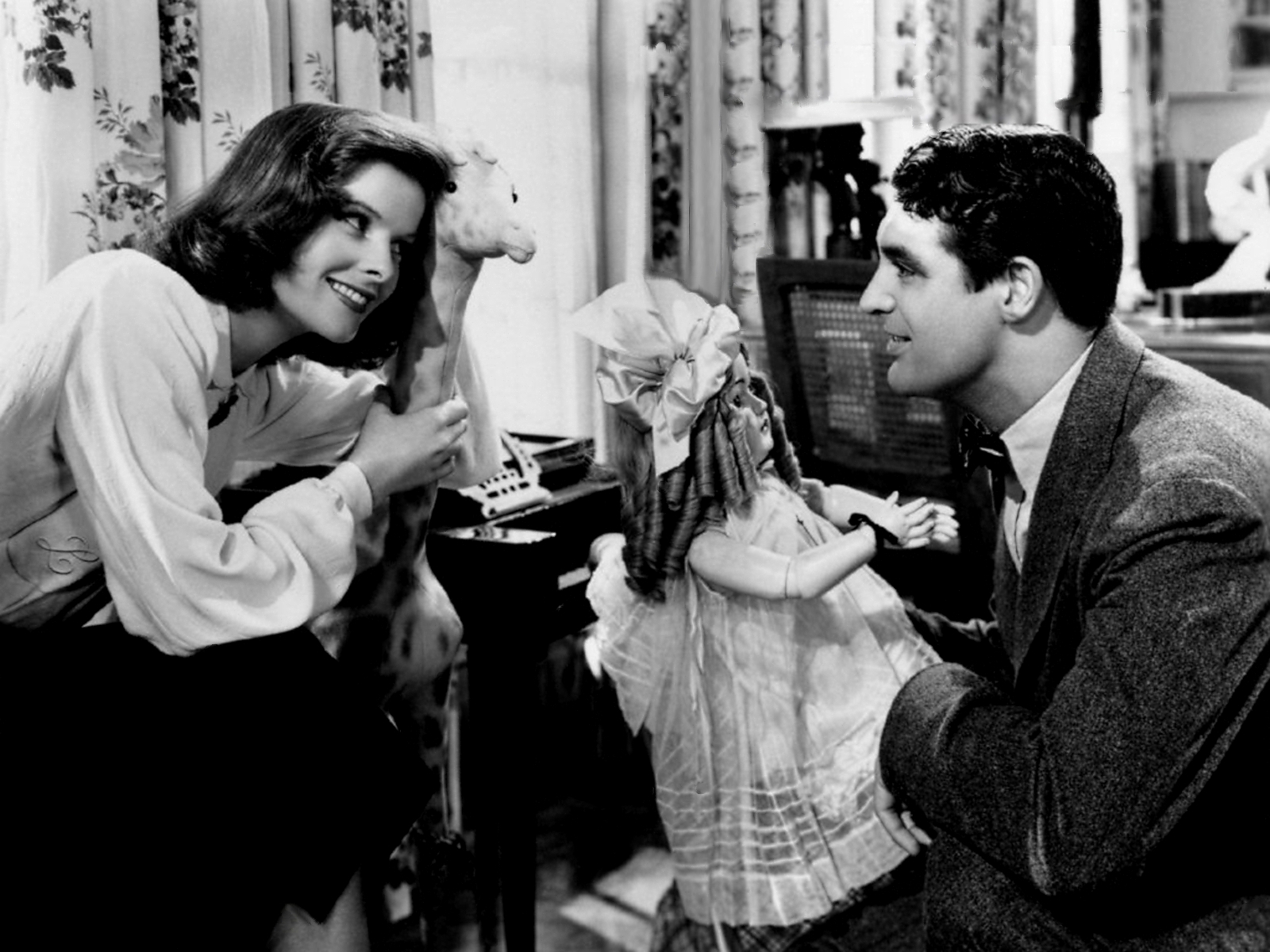

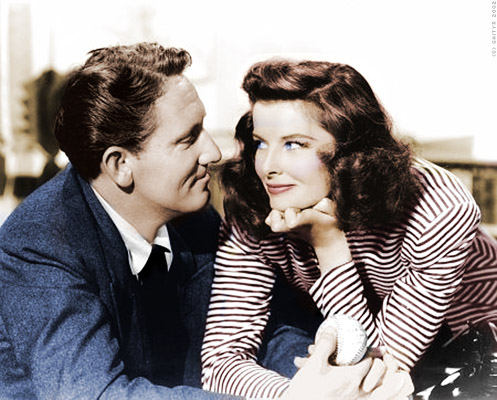


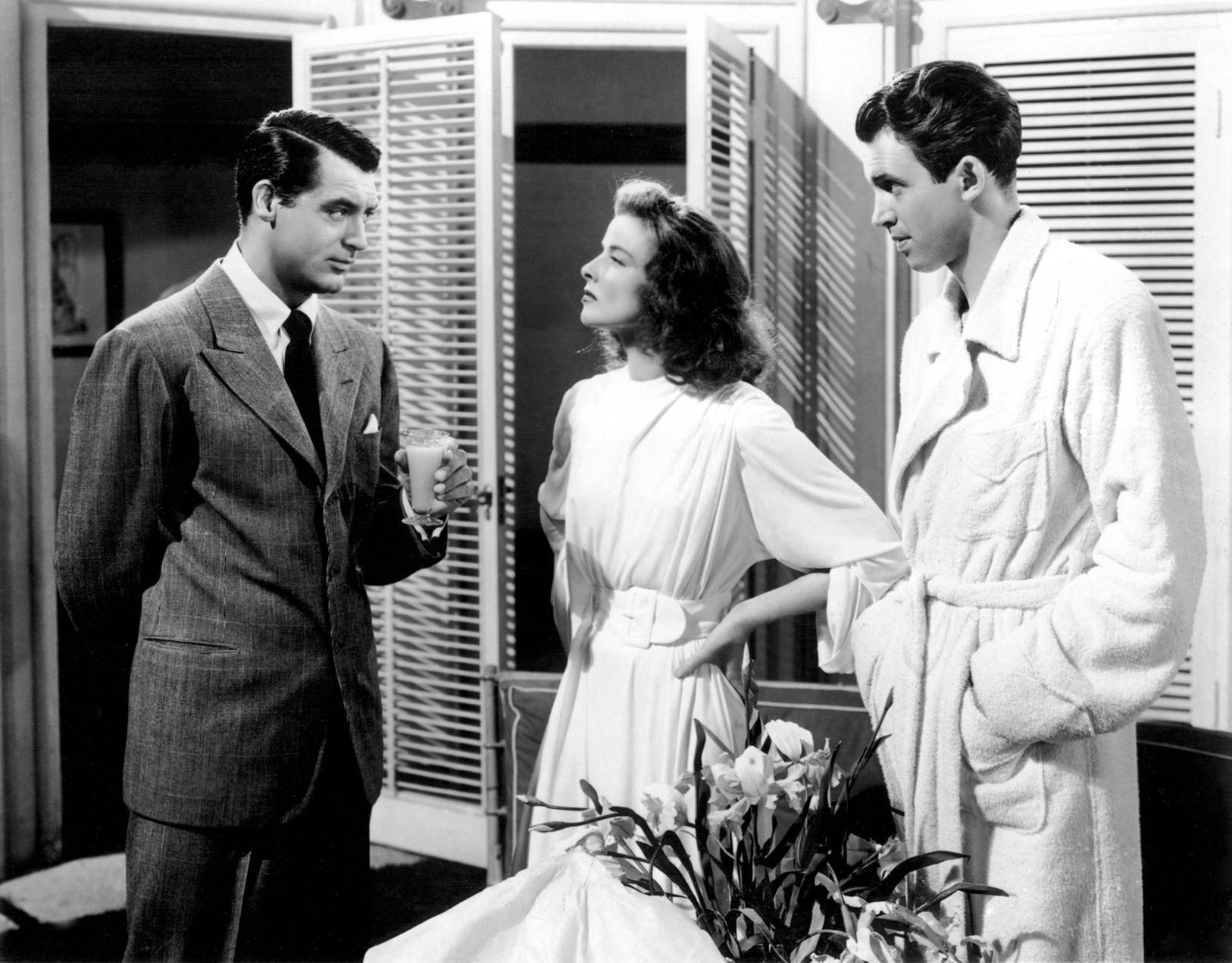
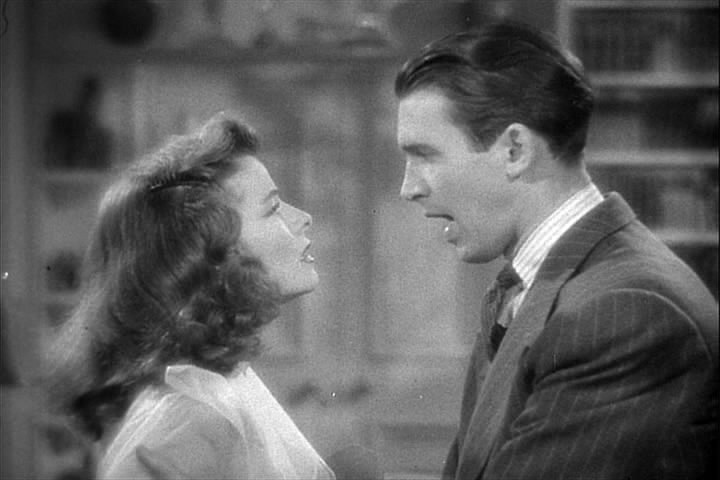

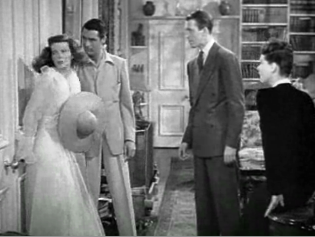


There were four CG/KH films. You missed Sylvia Scarlett (not a great film by any stretch).
ReplyDeleteIndeed... wanted to say the same... great article nonetheless
ReplyDelete